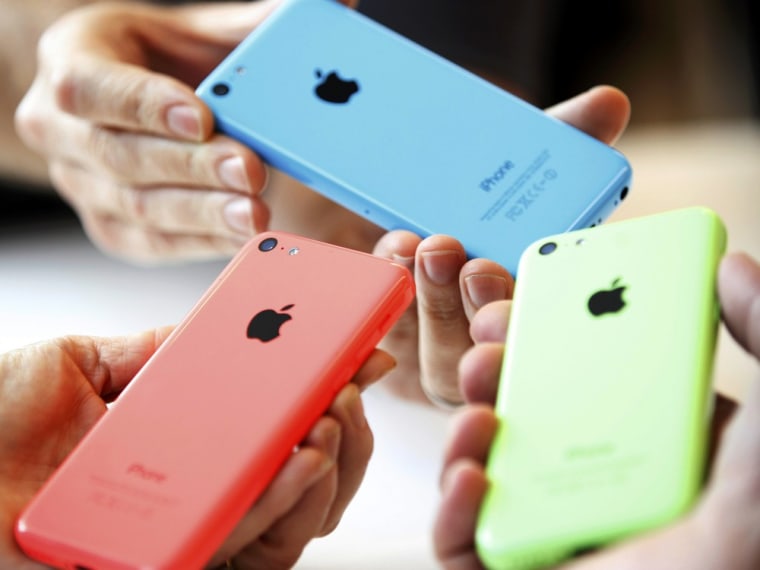The new Apple iPhones coming out this Friday will be the first to debut on all four major carriers at once, giving consumers their pick of provider.
Comparing the advertised prices of smartphone plans from AT&T, Sprint, T-Mobile, and Verizon Wireless will get buyers only so far. The bottom-line costs lie hidden beneath layers of fees. Some appear on monthly bills regardless of provider or plan. These include federal, state, and local taxes and an assortment of surcharges (911 access, universal service, and gross receipts, to name a few). Other fees can be sidestepped or reduced without moving across state lines. A Cheapism.com report on cell phone fees catalogs the potential charges consumers face. Here are a few to watch out for:
Phone Upgrade Fee. If you qualify for an upgrade from your current carrier, you may have to pay an upgrade fee on top of the price of the new phone. Verizon charges $30 and AT&T and Sprint charge $36. T-Mobile abstains from collecting this fee.
RELATED: Budget smartphone recommendations
Early Termination Fee. Consumers migrate to a new provider may confront this notorious fee. Most carriers charge customers up to $325 (AT&T) or $350 (Sprint and Verizon) to get out of a smartphone agreement early, although they prorate the fee based on how many months remain on the contract. The so-called ETF is lower at T-Mobile: $50 to $200, depending on the number of days remaining on an existing contract. For new customers, T-Mobile has stopped requiring a service agreement, which means no more ETF (although customers paying off their phones in monthly installments remain on the hook for the full cost of the phone).
Activation Fees. AT&T, Sprint, and Verizon charge $35 or $36 to activate a new line of service, but this fee also generally doesn’t apply at T-Mobile.
RELATED: Selling your old iPhone
Data Overage Fees. Consumers looking to download apps, post photos with the improved camera on the iPhone 5S, and stream music and video on the go must choose a data plan carefully. You don’t want to pay for more data than you need, but Verizon and AT&T customers who go over their monthly allotments face hefty fees: $20 for every 300 megabytes or $10 per gigabyte at AT&T and $15 for every 500MB or 1GB with Verizon, depending on the plan.
Sprint offers the option of unlimited data and otherwise charges by the megabyte, collecting 1.5 cents (or just over $15 per gigabyte). That can help keep costs down for customers who sometimes go over only a little. T-Mobile advertises not only unlimited data but also no overage fees. The cheapest plans do cap high-speed data, but exceeding the monthly limit simply slows things down and does not incur a fee.
RELATED: Best low-cost VoIP services
The Wall Street Journal’s Digits blog provides tips and information to help you get a sense of your data usage. The carriers also have calculators on their websites, although there are so many variables that the same inputs seem to yield different results on each calculator. One popular money-saving strategy: Simply choose the cheapest data plan and rely primarily on Wi-Fi.
More from Cheapism:
